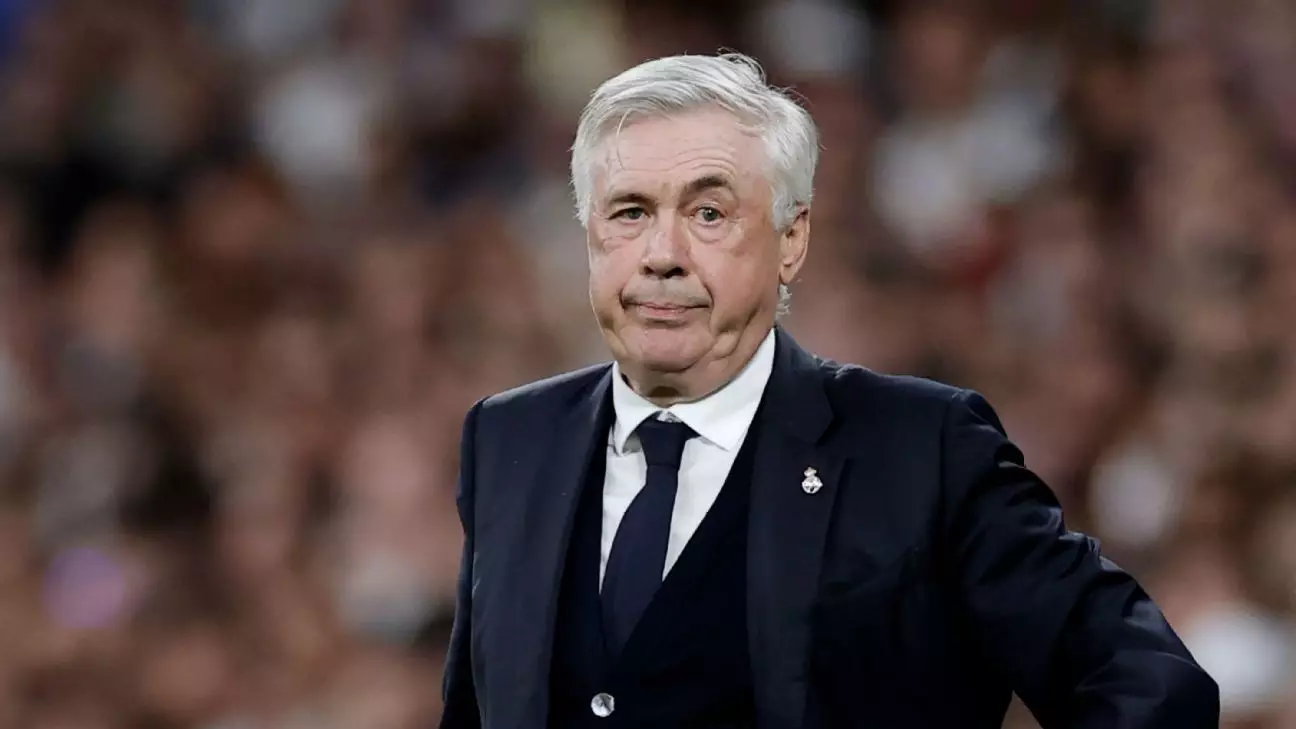The brewing tension between Real Madrid and Carlo Ancelotti over his potential transition to the Brazil national team shines a spotlight on the complexities of modern football management. With the Brazilian Football Confederation (CBF) reportedly optimistic about securing Ancelotti’s services in time for crucial World Cup qualifiers, Madrid’s resistance reveals a discordant note in an otherwise illustrious partnership. The financial nuances surrounding Ancelotti’s contract, which extends until June 2026, add an extra layer of complication to what could have been a smooth sailing transition.
Contractual Obligations vs. Career Aspirations
Ancelotti’s dual role as a revered coach at Real Madrid and a prospective leader for Brazil highlights the precarious balance between individual ambition and club loyalty. Real Madrid’s insistence on retaining Ancelotti until the completion of the current LaLiga season and the upcoming summer’s Club World Cup illustrates their desire to mitigate any potential disruptions. The expectation that he would focus solely on Madrid underscores the club’s short-term objectives, despite Ancelotti’s past successes, including three Champions Leagues and two LaLiga titles. The contrast is stark: Ancelotti’s career aspirations may align with pursuing an opportunity to lead Brazil, while Madrid’s reluctance to part with him stems from a fear of further disappointment following an underwhelming season.
CBF’s Dilemma and the Clock is Ticking
The challenges facing the CBF are no less complicated. Since the dismissal of Dorival Junior, Brazil has been without a coach, creating a sense of urgency as they prepare for fixtures against Ecuador and Paraguay. With Brazil currently lying fourth in the World Cup qualifying table, the importance of a seamless transition cannot be overstated. While CBF officials are reportedly negotiating with Real Madrid, the possibility of appointing an interim coach looms larger with each passing day. Such a contingency would not only disrupt team dynamics, potentially leading to further underperformance, but it also raises questions about the federation’s preparedness and vision for the future.
Potential Alternatives and Strategic Planning
Should negotiations for Ancelotti falter, the CBF is expected to turn towards alternative candidates like Jorge Jesus, the coach of Al Hilal. This scenario raises essential questions about the CBF’s long-term strategy. Relying on a series of short-term fixes could prove detrimental, especially with the World Cup on the horizon. It’s imperative that the CBF demonstrates a commitment to solidify a coaching philosophy that aligns with the expansive expectations of Brazilian football. Clarity about their objectives must take precedence over reactive measures that come with sweeping changes.
The Wider Implications for Coaching Contracts
The Ancelotti dilemma sheds light on a broader trend in football: the struggle that clubs and national federations face in managing coaching contracts amidst a crowded calendar of competitions. With multiple interests vying for priority, both Madrid and Brazil need to recalibrate how they approach coaching contracts in the future. The failure to navigate these shifts can lead to missed opportunities and can stifle the growth of teams hoping to achieve their potential. As negotiations progress, this case serves as a critical juncture in determining the future trajectory of not just Ancelotti’s career but also the immediate fortunes of Brazilian football.

